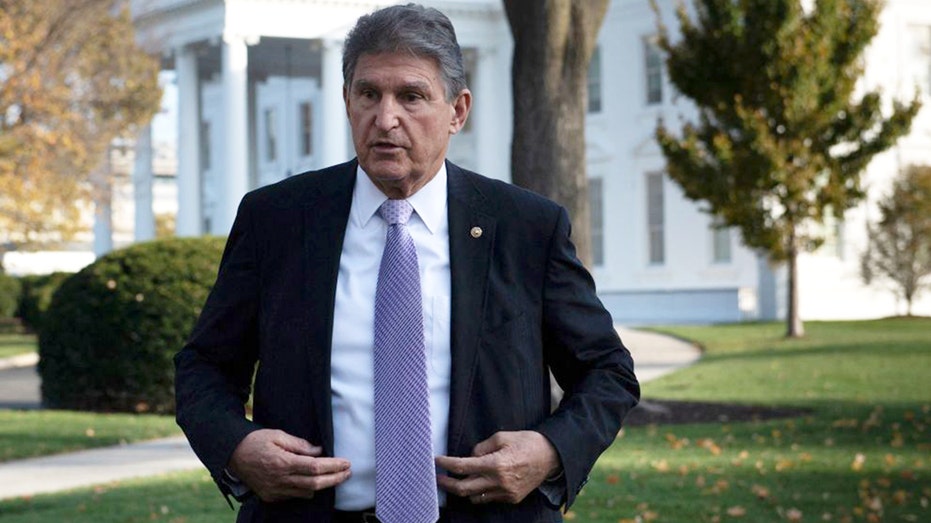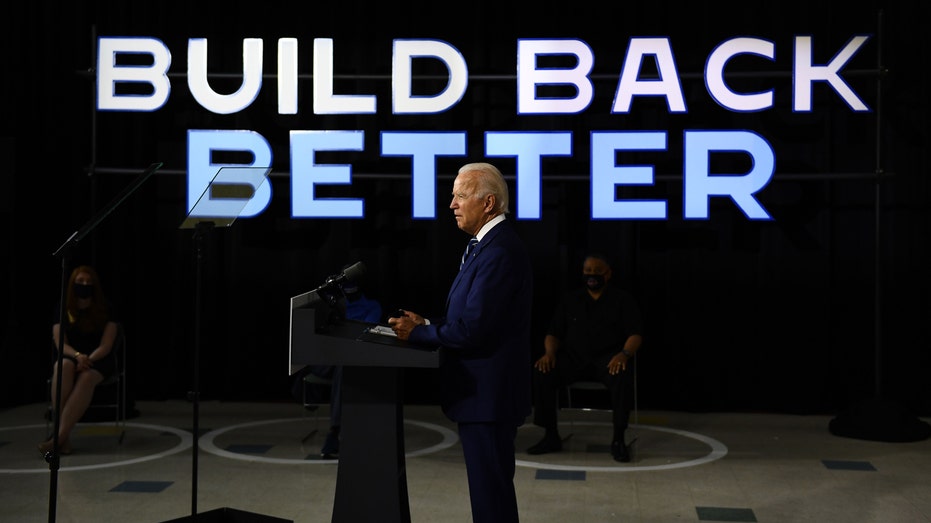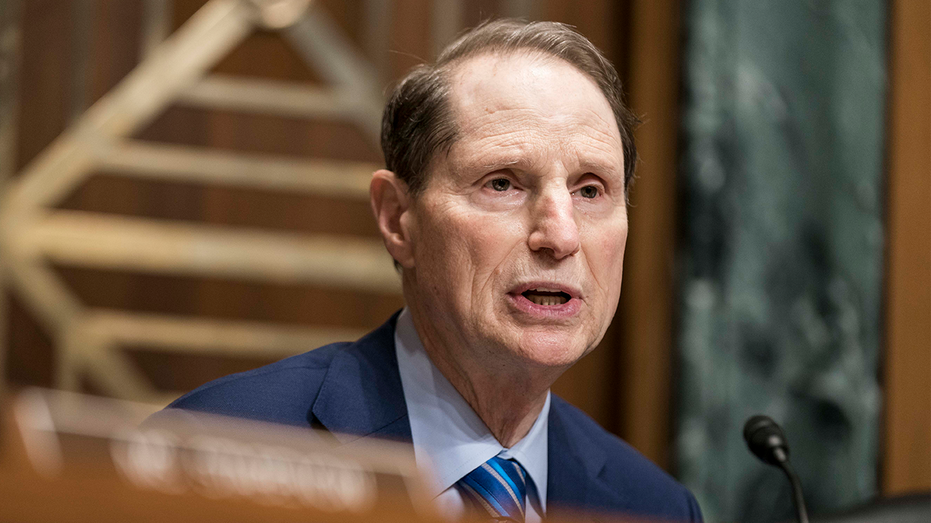Biden's tax overhaul on thin ice after Manchin torpedoes massive spending bill
Millionaire surtax, corporate minimum off the table after Manchin opposition
Sen. Manchin says he won't vote for Biden's Build Back Better agenda
Rep. Jeff Van Drew, R-N.J., discusses Biden's Build Back Better agenda struggling in the Senate and the 2022 midterm elections.
A slew of proposed taxes aimed at ultra-wealthy Americans and well-off corporations were dealt a potentially fatal blow on Sunday, imperiling a key pillar of President Biden's sweeping economic agenda.
Moderate Democrat Sen. Joe Manchin told "Fox News Sunday" that after more than five months of back-and-forth negotiations with the White House and other Democratic leaders, he could not support the final $1.7 trillion package.
"I cannot vote to continue with this piece of legislation," the West Virginia senator said during the interview, citing concerns about the hottest inflation in decades. "I just can't. I have tried everything humanly possible."
BIDEN PITCHES REVAMPED MILLIONAIRES TAX, GLOBAL MINIMUM TO FUND SPENDING BILL

Sen. Joe Manchin, D-W.Va., walks the grounds of the White House on Nov. 18, 2021, in Washington, D.C. (BRENDAN SMIALOWSKI/AFP via Getty Images / Getty Images)
Manchin's opposition, however, jeopardizes the various tax increases included in the massive social spending and climate bill, as well as Democratic efforts to extend the boosted child tax credit and repeal a Trump-era limit on state and local tax deductions. Democrats had previously hailed the expanded child tax credit as a successful way to reduce poverty with direct payments to low-income families and were hoping to rely on that messaging ("Money in people's pockets and shots in people's arms") further ahead of the 2022 midterm elections.
New levies that have been pushed to the wayside indefinitely include a 15% minimum on corporations based on profits they report to shareholders, a tax that would only apply to companies that reported over $1 billion in income for three straight years. Senate Democrats estimated the tax would apply to about 200 companies. The "Build Back Better" framework also included a 15% global minimum tax, which would apply to companies' overseas earnings.
Another tax shelved for now is a proposed 1% surcharge on stock buybacks that was designed to deter companies from repurchasing their own stock from investors and spur businesses to put that money toward long-term investments, such as hiring and wage increases.
Stock buybacks have become a frequent bipartisan target on Capitol Hill in recent years, as corporations use capital to reduce the number of outstanding shares by reabsorbing them, thereby increasing the earnings per share of the company, rather than growing the company or funneling it back to employees.

Then-presidential candidate Joe Biden speaks about on the third plank of his Build Back Better economic recovery plan for working families, on July 21, 2020, in New Castle, Delaware. (BRENDAN SMIALOWSKI/AFP via Getty Images / Getty Images)
Biden had also called for a surtax on multimillionaires and billionaires, pitching a 5% rate on individuals with income above $10 million. That rate would climb to 8% for individuals with income above $25 million – in addition to the current top individual income tax rate of 37%. The White House estimated it would affect about 0.02% of taxpayers.
Other provisions in the bill that targeted wealthy taxpayers included an effort to close a loophole that allowed some rich Americans to avoid paying the 3.8% Medicare surtax on their earnings by strengthening a net investment income tax for anyone earning more than $400,000.
Manchin's objection also jettisoned Democrats' push to beef up tax enforcement by providing the IRS with $80 billion in additional funding to crack down on tax evaders.
Democrats responded to Manchin's stunning withdrawal from negotiations with contempt and pledges to continue pushing for the bill's passage.

Sen. Ron Wyden, D-Ore., on Feb. 12, 2020 in Washington, D.C. (Sarah Silbiger/Getty Images / Getty Images)
"Failure is not an option here," said Sen. Ron Wyden, chairman of the Senate Finance Committee. "A package that addresses critical priorities over the long-term, like providing financial security for families, lowering the costs of health care and prescription drugs for seniors, and creating clean energy jobs by combating the climate crisis would go a long way toward addressing our challenges."
Biden had already watered down the bulk of his proposed tax cuts in order to placate Sen. Kyrsten Sinema, D-Ariz., who criticized the steep increases in corporate taxes, capital gains taxes and income taxes. The entirety of former President Trump's signature 2017 tax law, which substantially lowered rates for corporations and well-off Americans, will likely remain intact.
GET FOX BUSINESS ON THE GO BY CLICKING HERE
If Biden had succeeded in passing the proposal, Congress would have approved a staggering $5 trillion in spending in the less than one year since he took office, an unprecedented level. The nation's debt level is already at a historic high of $29 trillion and is on track to surpass $30 trillion.





















